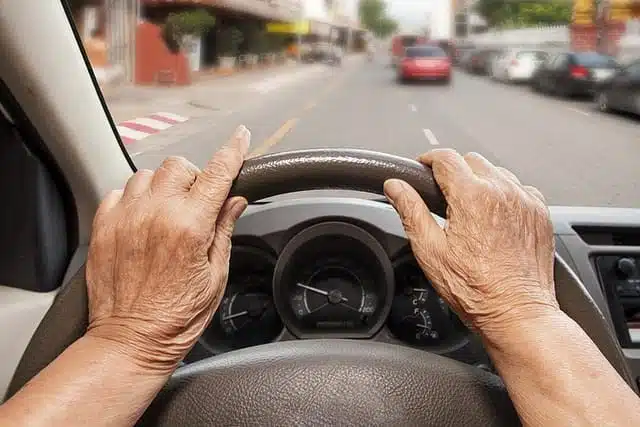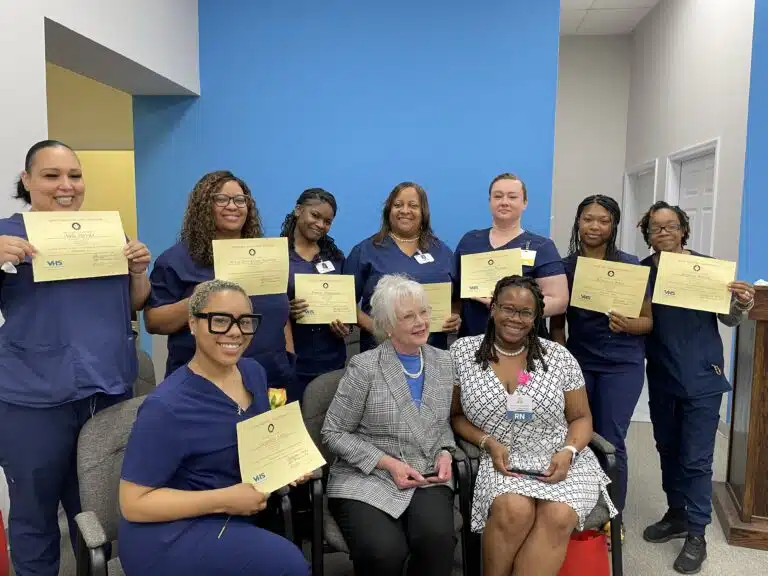When Should My Parents Stop Driving?
How do you know when it’s time for your parents to stop driving? It’s such a tough subject to bring up since driving is such a huge part of our independence as an adult. It’s not going to be easy to talk them into giving up that privilege. And most of us can only sympathize with just how difficult that talk is going to be.
In fact, according to a recent survey conducted in partnership with the National Safety Council, asking an elderly parent or loved one to stop driving was more difficult to talk about than topics like selling the house, finances, or final wishes. See https://www.nsc.org/road-safety/safety-topics/older-drivers.
Point is, it is a hard conversation to have and there are many variables to consider. Is it dangerous for my parents to keep driving? Is it wrong if I ask them to stop driving even if they haven’t had any accidents yet? When is the right time for my parents to stop driving? All of these questions are likely going through your head- the important thing is to start a dialogue and come from a place of honesty and caring.
When to Give Up the Keys
Driver’s safety isn’t just a problem with elderly people. Sometimes medical conditions, physical conditions, and cognitive skills all play an important role in deciding when it’s time to hand over the keys. A good way to recognize bad driving habits is to go for a ride and observe their driving skills. Keep a mental record of any problematic habits and write them down later on. Try to share actual problems you saw while they were driving rather than speaking in generalities, as that will make for a smoother conversation.
According to the AARP, there are several warning signs to look for that may signal it’s time for your elderly parent or loved one to give up the key. Check out https://www.aarp.org/auto/driver-safety/info-2016/when-to-stop-driving-in-older-age.html. They include:
- Frequent close calls
- Getting confused or lost in familiar areas
- Slow responses to unexpected situations on the road
- Driving too fast or too slow
- Frequent dings, dents and scrapes on the vehicle
- Being easily distracted or having a hard time concentrating
- Having difficulty staying in the correct lane of traffic
- Repeatedly hitting curbs when making right turns or backing up
6 Helpful Tips on How to Start the Conversation
- Begin Earlier Rather Than Later
If you start seeing small signs early, go ahead and mention it. Try not to wait until a serious accident happens. They likely won’t agree with you the first time you bring it up. However, they may seriously consider it if it’s brought up again, especially if they can see your legitimate concern. Perhaps you can suggest they stop driving only at night time, or when there is bad weather. Once they feel they can still get around without driving, it will be easier to let go when the time comes around.
- Try to Be Understanding
Giving up the freedom of driving is a radical lifestyle change. So put yourself in their shoes and keep it casual. Admit that it’s not easy and be respectful when broaching the subject.
You can say, “Dad, I know this must be hard for you, but we need to talk about your driving”. Then share whatever incidents you’ve noticed in a non-judgmental way that has led to this talk. Getting their input is important, too. Ask if they’ve noticed any changes in their driving skills and what they think should be done.
If you’re met with frustration, hostility or denial, remain calm and keep your emotions in check. Having compassion and understanding will go a long way in letting your parents know you care about their safety, not about taking away their self-reliance.
- Talk With Your Family
It’s important to include family members and close, personal friends on the subject of driving before you speak with your aging parent or loved one. If you’re all worried and on the same page, it may be enough to convince your aging parent to give up the keys.
However, do not use a family meeting to hold the talk with your parents. It could make them feel as though everyone is ganging up on them, and causing confrontation. Instead, initiate the conversation yourself or ask a trusted family member or friend who relates well with them to have a one-on-one talk.
4. Visit the DMV
If your talk or multiple talks with your aging parent or loved one isn’t going so well, suggest a visit to your local DMV. They can take a driving and vision test or a refresher course for senior drivers. If they’re not worried about their driving skills, they should be confident about their ability to prove it. However, be ready for the possibility that they might pass their test, and if you still see them making dangerous mistakes on the road, you may be heading for an even more difficult discussion in the near future.
- Provide Transportation Alternatives
Losing independence and being trapped in the house is a big fear for seniors who are considering giving up driving. It’s important to make it clear that this is not the end of their weekly bridge game, meeting up with friends, attending church, going shopping or doing all the things they love to do. Know, too, that you and other relatives may have to divvy up some ride sharing duties.
Once no longer driving, your parents will still need some way to get around. Here are some good transportation alternatives for aging individuals that have stopped driving:
- Explore local bus, subway or train routes. Some even offer seniors discounted fares.
- Hiring a driver or taxi service is a good option but can be expensive.
- Ridesharing apps like Uber or Lyft are convenient, but seniors may be a little leery about these new services. Offer to ride along with them on a few trips so they can see how ridesharing works.
- Many senior living communities offer convenient and regularly scheduled transportation to medical appointments, shopping and community events and programs.
- Services like Amazon Prime, Instacart, GrubHub and grocery and pharmaceutical delivery options can deliver almost everything right to your parent’s door.
- Look for free community-based senior transport services. Many nonprofits, like the American Cancer Society & churches, offer free transportation to medical appointments.
- It’s Not Just About Them
If you’re really having a hard time getting through to your parents, point out the effects their decision could have on others. For instance, ask them if they feel confident in their abilities to drive their grandkids safely around town. They may be willing to risk their safety, but the thought of their grandkids getting hurt could bring them back to reality. Besides the more obvious consequences, if they damage someone else’s property or injure another person, they risk a lawsuit and losing their hard-earned retirement savings.
Recognizing the warning signs and talking to aging parents or loved one may not be easy. However, if you start early and plan ahead with the right understanding, the conversation can be successful. And down the road, everyone will feel better and assured that your parents are safe and well-cared for.
vhs2021design
on
November 3, 2020








